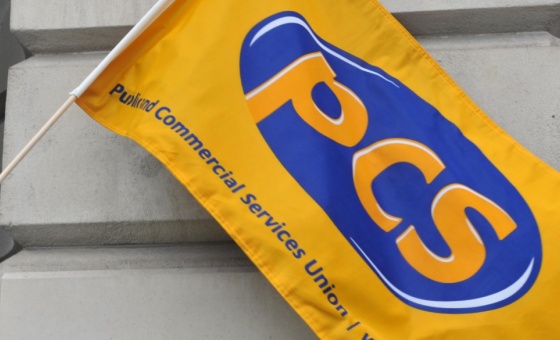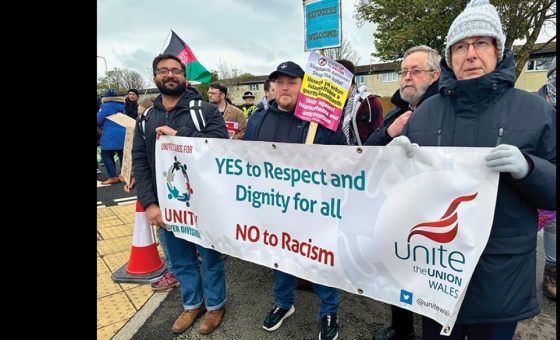This is the last article you can read this month
You can read more article this month
You can read more articles this month
Sorry your limit is up for this month
Reset on:
Please help support the Morning Star by subscribing here
THE job of an effective opposition is to bring to Parliament the lived experiences of communities — to confront government with the facts and the realities about what is happening outside the parliamentary bubble.
That’s why we have raised ongoing concerns over personal protective equipment to ensure people are cared for effectively and are treated fairly. We have repeatedly questioned the First Minister about the grim realities facing Scotland’s care homes and the toll this has taken on carers too.
We have shone a light on the human rights erosion faced by Scotland’s most vulnerable people, with the SNP government now under pressure from the Scottish Human Rights Commission. The facts and realities from the real world were graphically illustrated last week when two trade union delegations lobbied the Scottish Parliament.
One was a group of GMB members in aviation who were demanding action to save their jobs.
Many of them are employed by Swissport, which has recently announced that 800 out of a thousand jobs in Scotland’s airports are at risk of redundancy. In most of the rest of the Britain, the proposed job cuts are nearer 50 per cent — not 80 per cent. No wonder one worker told me that they feel like the “collateral damage” of this pandemic.
Another major employer in the sector is Menzies Aviation. Menzies is despicably exploiting a loophole in the Trade Union and Labour Relations Consolidation Act to fire and rehire its own 600-strong workforce at Edinburgh and Glasgow airports on hugely inferior terms and conditions.
This includes the complete removal of shift pay, of sick pay and bonuses and swingeing cuts to holidays, hours and hourly rates of pay. This practice ought to be outlawed.
Despite the obvious crisis in the aviation sector Scotland’s First Minister has met with the airport owners, but not with the aviation trade unions who first wrote to her requesting talks back in early March. This is a glaring omission, which tells its own story.
Companies like Menzies Aviation have benefited from the British government’s Job Retention Scheme and the Scottish government’s 100 per cent business rate relief scheme.
The right for a corporation to benefit from these schemes should be conditional on a few simple requirements like the fair treatment of their workers and their fair share of tax being paid up in full. It is no good the Scottish government paying lip service to such an approach but then doing nothing to enforce it.
The other workers petitioning Parliament were Unite union members from the Rolls Royce factory in Inchinnan.
At the beginning of June, Rolls Royce announced it was to “re-size” its business, which was PR speak for the closure its Maintenance, Repair and Overhaul (MRO) business with the loss of 700 jobs at the Renfrewshire site.
In response the Scottish government set up a Rolls Royce Working Group tasked with protecting jobs. The First Minister told Parliament that there would be a “team Scotland approach.”
But if it was a team, it was a team that didn’t include the players, because extraordinarily the Working Group co-chaired by a Scottish government official and a Rolls Royce boss based in London did not include one single shop floor worker or trade union representative. Another glaring omission.
The union convenor, Tam Mitchell, who has worked for the company for almost 35 years at East Kilbride and Inchinnan, told me of the Working Group, “I have been told officially by the company that MRO is not even on the agenda at the meetings because the First Minister’s office was told by Warren East, the CEO of Rolls Royce, that ‘those jobs are gone’.”
So a Scottish government Rolls Royce Working Group, established to protect jobs at Rolls Royce in Scotland, has excluded the Rolls Royce unions, kept them in the dark about its real intentions and has written 700 Rolls Royce jobs in Scotland off. This is shocking. And the responsibility for this and its consequences lies squarely at the door of the Scottish government.
No-one is suggesting that the Scottish government has a magic wand, but the working women and men at Inchinnan are rightly angry that no fight has been put up, no alternatives explored, no diversification considered and that they were not told the truth that this was the SNP government’s stance.
Indeed quite the opposite, the SNP’s Minister for Business, Fair Work and Skills as recently as last Tuesday was protesting that “the Scottish government are (sic) exploring all options for the Inchinnan site.”
Last Thursday in Parliament the First Minister promised me that the unions would now be included in this “collaborative working group” but that is too little too late. People are leaving work for the last time, termination letter in hand, as early as this week.
Let me be clear: this is about much more than the future of a state-of-the-art factory. Around 700 manufacturing jobs will remain at Inchinnan as the company continues to produce engine blades and seals on site.
But the closure of the engine maintenance, repair and overhaul business and the loss of these highly skilled jobs is a big blow to what remains of our aerospace industry in Scotland.
The future of work and the future of workers is not simply an economic question — it is a test of our social priorities too. So we need government leadership on a scale and with a sense of purpose not in evidence to those aviation and aerospace workers who came to Holyrood last week.
One of the shop stewards told me that this is not just about these jobs — it is about future generations.
Which is why Scottish Labour’s summer campaign, Jobs for Good, focuses on retaining good jobs and guaranteeing and creating jobs for good. That means that as well as intervening to rebuild Scotland’s manufacturing base, we need to ensure jobs are paid at the union-negotiated rate.
The Tory government’s Kickstart scheme won’t do this — so Scotland needs a quality jobs guarantee scheme that will.
Scotland desperately needs to replace the SNP’s failed hit and miss approach to industrial intervention with sectoral planning — and yes, sectoral collective bargaining too.
Since Covid-19 hit us and the lockdown began, we have seen a rising public expectation that the powers of governments should be deployed to help those in need, to safeguard public health, but it is also to safeguard jobs and the wellbeing of people too.
Lets work together across the labour movement to galvanise that new popular mood to prevent a drift back to the failed old status quo — and let’s give people confidence that we can build a better future and jobs for good.










